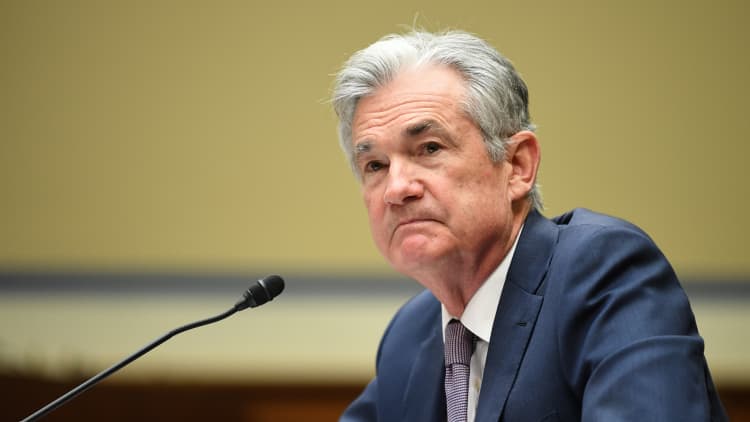The European Central Bank could be about to tweak its main policy objective as it combats the economic fallout from the coronavirus crisis.
Since 2003, the central bank has targeted an inflation rate "below, but close to 2%" in an attempt to address concerns over significant consumer price rises. However, the ECB is currently more worried about sluggish price increases. As a result, a recent strategy review in Frankfurt could lead to a new target.
"In the current environment of lower inflation, the concerns we face are different (than in 2003) and this needs to be reflected in our inflation aim," ECB President Christine Lagarde said at a press conference on Wednesday.
She spoke of a wider debate happening on whether central banks should commit to explicitly make up for inflation misses when they have spent some time below their targets.
"If credible, such a strategy can strengthen the capacity of monetary policy to stabilize the economy when faced with the lower bound," Lagarde said.
"While make-up strategies may be less successful when people are not perfectly rational in their decisions — which is probably a good approximation of the reality we face — the usefulness of such an approach could be examined."
Annual inflation in the euro area averaged 2.3% from 1999 to 2008, at which time the global financial crisis hit. Since 2008, inflation has only averaged 1.2% until the end of 2019, according to ECB data. The ECB's strategy review is studying how to adapt its policy to the current economic reality.

The Federal Reserve in the United States has undertaken a similar assessment and announced in late August that it would be allowing inflation to run above its target of 2% for "some time." This means that the central bank will be less likely to increase interest rates — a move that has wide implications for financial markets and the every day consumer.
"Many find it counterintuitive that the Fed would want to push up inflation," Fed Chairman Jerome Powell said at the time. "However, inflation that is persistently too low can pose serious risks to the economy," he added.
Very low inflation is also a cause of concern among European officials.
Speaking to European lawmakers on Monday, Lagarde warned that upcoming data could point to further deflation — when the inflation rate enters negative territory, meaning that prices are falling rather than increasing.
The flash inflation reading for August had already come in at -0.2%, from 0.4% in July.
Central bankers monitor deflation closely as it could proceed a financial crisis. In a healthy economy, prices tend to rise at a gradual pace, not fall.
The euro zone is on track for an annual contraction of 8% in gross domestic product (GDP) this year, according to forecasts made by the ECB.
The health emergency caused by the coronavirus outbreak has hit the region hard, with many industries struggling to keep business alive.
Despite a rebound in activity in the third quarter, there are doubts about how the euro zone will perform in the final quarter of the year as many countries have announced further restrictions to contain the virus.
"Euro area real GDP (gross domestic product) is only expected to recover to pre-crisis levels in late 2022," Lagarde said on Monday.
"The strength of the recovery remains, however, highly dependent on the evolution of the Covid-19 pandemic and the success of containment policies," she added.


